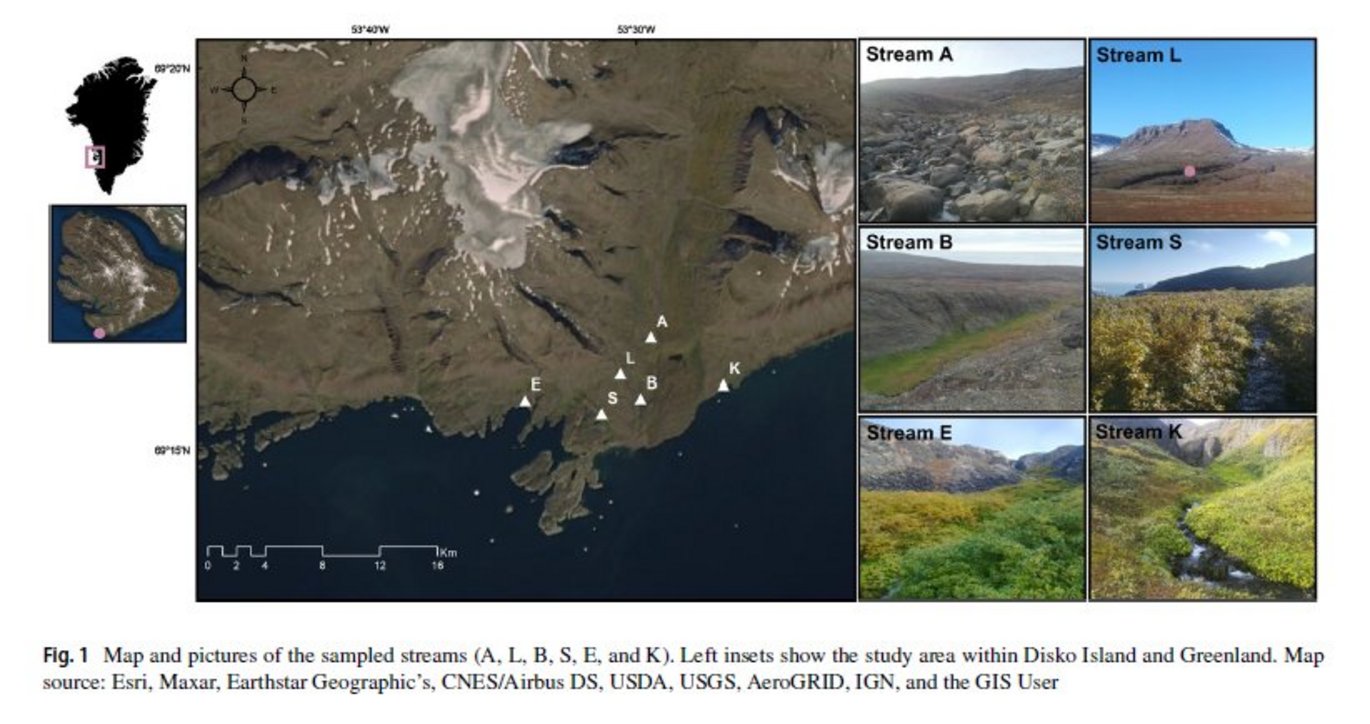Temperature-induced changes in biofilm organic matter utilization in arctic streams (Disko Island, Greenland)
New publication by Ada Pastor, Paraskevi Manolaki, Anna Freixa, Pau Giménez‑Grau, Anna M. Romaní, Tenna Riis

Abstract:
Arctic terrestrial vegetation is responding to warming with higher biomass and productivity, but the effects for freshwater ecosystems are unclear. Biofilm extracellular enzymes are important mediators of organic matter processing in aquatic ecosystems, thus understanding how enzyme activities change with water temperature and organic matter availability is important to assess the effects of climate change. Here, we studied biofilm enzyme activities in six streams differing in their riparian vegetation cover and water thermal regime on Disko Island, Greenland. For all streams, biofilms enzymes showed a low activity to decompose plant material, as expected in the Arctic. However, in contrast to simple polysaccharides, there was a significant increase in the capacity for hemicellulose decomposition, in streams with high-vegetation cover. Moreover, biofilms in high-vegetation streams showed greater autotrophy (chlorophyll a to total organic matter content) and higher phosphatase activity than stream with low-vegetation cover ones. Enzyme temperature sensitivity (measured as the rate of change of enzyme activity by biofilms incubated at 3 and 22 °C) did not change across the streams, but differed among enzymes types. Phosphatase and phenol oxidase enzymes presented the highest sensitivity to water temperature, which suggests that the degradation of organic phosphorous compounds and lignin could be disproportionately enhanced under warming climate scenarios.
